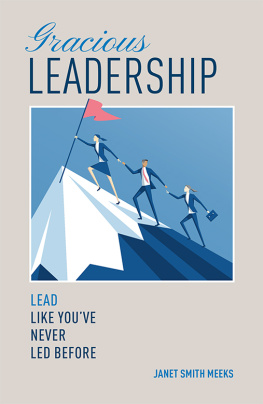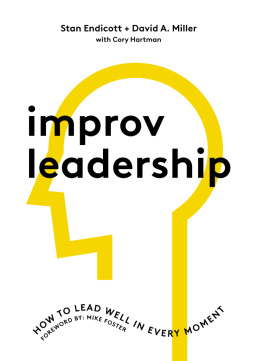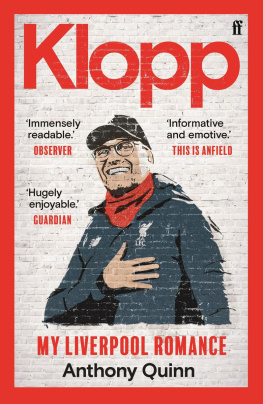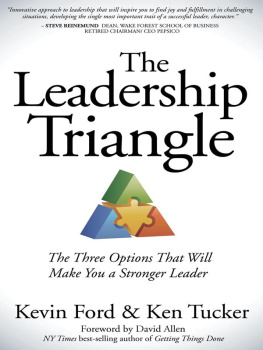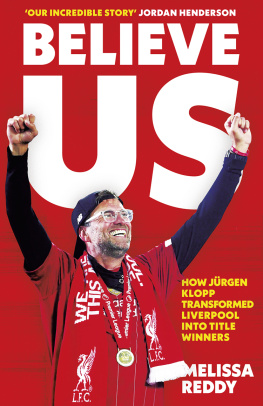I feel so strongly about the message that I went out and bought a copy each for my daughter and son. Your book will have a positive influence on many peopleNICE JOB. Your book was magnificent.
Mike Shields.
The book is inspirational and very exciting reading. You legitimized my lifelong quest for quality in a very profound way.
The book was the very best book I have ever read.
Jan Perkins.
Thank you for showing me that business doesnt have to be routine and stagnant.
The Adventure of Leadership will stay on my office desk right next to Creativity in Business as two of the best reference manuals a creativity seeker could ever hope to acquire.
Thanks for sharing your experiences, your passion, and your infectious optimism, all of which I am in the process of incorporating into our corporate philosophy.
Reading your book helped solidify my fanatical commitment to building the best fresh juice company in the world.
Make the world a better placeAbove all else, that basic premise is what I believe defines a leader of people and what I found throughout your book. Thank you.
Conquering the North Face
An Adventure in Leadership
HAP KLOPP
with Brian Tarcy
HAP KLOPP
Conquering the North Face: An Adventure in Leadership
1991, 2003, 2012 by Hap Klopp
All rights reserved. No part of this book may be reproduced or
utilized in any form or by any means, electronic or mechanical, including
photocopying, recording or by any information storage and retrieval
system, without permission in writing from the Publisher.
Published as an e-book January 2012 by Hap Klopp
For more information, please visit www.hapklopp.com
Ebook ISBN: 978-1-6175097-5-9
Cover Photography by Brian Biega
To businesses that are fun,
To adventures not yet begun.
CONTENTS
I am in love with the extraordinary. The company I founded, The North Face of Berkeley, California, epitomized this passion. I started the company in 1968, two years after receiving my MBA from Stanford. From the beginning The North Facea maker of quality outdoor equipment for mountaineers, backpackers, skiers, and professional adventurerscame to represent my vision. For 20 years I disobeyed business conventions of passionless management by immersing myself in my work and, more important, in the lives and dreams of my coworkers. I told them of my dream, of my vision to be the best. And then I asked for their help.
Together we grew. We brought more people in, and we shared the vision further.
The North Face was named after the north side of any mountain, such as Eiger Mountain or the Matterhorn in Switzerlandthe side exposed to the harshest elements of nature. It is considered the greatest challenge for any climber. The name was appropriatesince we knew what we wanted wouldnt be easy.
But we knew one other thingif we pulled together, we could climb the north face of business, and it would be a hell of a lot of fun to do it.
Mine was a fascinating business. Because we made the best equipment in the world, I was constantly approached by professional adventurers who needed to be outfitted. These began as business relationships. But, as all successful relationships do, they evolved into much more. Through friendships with these people as well as my business relationships, I watched as vision became reality and risk became reward. I was moved by their energy. Always they helped sharpen my focus.
I brought these lessons into my business, and I shared them with my employees. For years my evangelical crusade was focused on my own company and periodically speaking from podiums. Recently I sold my company and tried to observe the world of business from a different perspective, that of a consultant. The perspective has changed, but my view hasnt.
I see an ever-growing crisisa critical lack of passionate leadership. It seems everyone knows how to manage. Few know how to lead. There is such a fear of risk and a lack of joy in the working lives of most Americans that it seems impossible to expect anything but more of the sameinterminable mediocrity.
Thats why I felt compelled to write this book. The Adventures of Leadership begins at the peak of your spiritual backbone, where a single, raw nerve ending glows with the essence of life. I have written this book with precisely that part of you in mind. I want to touch the part of you that dreams of extraordinary things.
By sharing my experiences and some of the insights Ive been able to glean from personal adventures both in and out of business, I hope to offer not merely ways of helping your bottom line but also ways to improve your total outlook. Certainly the intellectual cross training I have had from the variety of activities I have done and the weird and wonderful assortment of adventuring and business friends I have collected have given me some insights into what it takes to succeed against the odds in any pioneering adventure: business, sport, education, or personal.
My hope is that this book will be a real catalyst for dynamic change. It is a call to action for the disenchanted who are being stifled by corporate America and to those who are mistakenly intimidated from speaking out by an illogical reverence for managers and corporate shibboleths. I offer you my experience, my knowledge, and my instincts. I offer you my heart.
The Living Death of Bad Business
I n 1966, I walked irreverent and happy into the middle of corporate America. I didnt stay long.
I had just received my MBA from Stanford University. This was back when an MBA was actually something useful. I thought the culture of a major corporation might be beneficial, but as I began to interview around, I quickly learned that irreverence and happiness were not exactly typical or approved corporate qualities.
I didnt really know what I wanted, but I sure knew what I didnt want, and unfortunately that was all I could find. Blandness. Fear of risk. Fear of change. Everywhere I lookedand I interviewed at about six or seven major corporationsI found a status quo that wanted me to file away my brain for a good dozen years before theyd ask my opinion.
I still laugh when I think about my interview with Proctor & Gamble. It was a laborious process of interviewingone hour each with eight different people. Finally I sat down with the director of personnel. The first thing he asked was whether I wanted to be known as Kenneth, my real name, or Hap, a name Id had since childhood. Hap, I said. Thats what all my friends call me.
He looked at me for a moment, kind of tugged at his tie. Rubbed his chin. And with a deep authority in his voice that made me know he was making a serious, corporate-type decision, he said, I think youd be better off as Kenneth.
I bit my tongue and waited.
Then came his second question. So, Kenneth, whats your vision of the future? If we were to hire you, what role would you play in the company in, say, five years?
I looked at him. He was this sad little humanoid with a Mommys-boy face and just enough authority to give him a bullys demeanor. I could imagine him in grade school getting thrown against his locker, pleading for his life and offering his lunch money for ransom. This moment, I assumed, was his revenge. In five years, I said, if I were to be here, and I underscore the word if, I would expect to be president. I guess that means passing you in five minutes, and that doesnt seem like any big deal to me.
Reverence to titled authority, as you can see, has never been one of my strong points. I believe respect must be earned, and I also believe the primary person you should respect is yourself. After my meeting with the personnel director at Proctor & Gamble, I felt good about myself. It was fun to tweak this functionary and his bullying ways. He hadnt earned my respect. He wouldnt even call me by the name I chose. I knew my own abilities, and I knew my life wouldnt end if the humanoid didnt like me.


